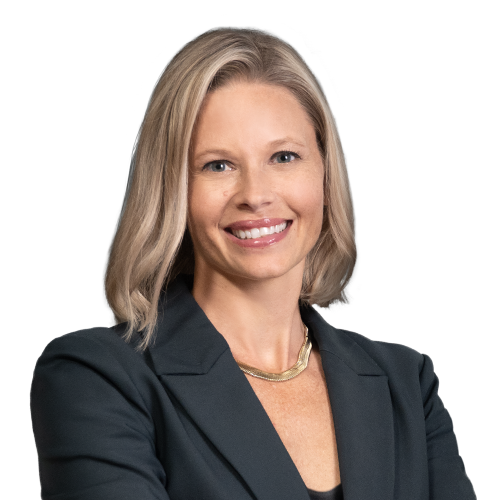NAIC H Committee Continues as Ringmaster Coordinating Numerous Initiatives
Under the leadership of Maryland Insurance Commissioner Kathleen Birrane, in 2023 the Innovation, Cybersecurity, and Technology (H) Committee of the National Association of Insurance Commissioners completed two main performances and, in 2024, will continue to orchestrate a number of high-flying acts.
As reported above in “In the Big Top Spotlight: NAIC Model Bulletin on the Use of Artificial Intelligence Systems by Insurers,” the H Committee completed work on a model bulletin on the use of AI systems by insurers, which was adopted by the NAIC at the 2023 Fall National Meeting. In addition, the Big Data and Artificial Intelligence (H) Working Group completed its AI and machine learning survey and presented its findings at the 2023 Fall National Meeting. In the other rings, work will continue in 2024 by the following (H) working groups: Cybersecurity, E-Commerce, Innovation in Technology and Regulation, and Privacy Protections.
Birrane also announced the following initiatives that are further summarized below:
- A new Third-Party Data and Models (H) Task Force.
- A new enforcement collaboration forum.
- A new open source technology collaboration forum.
- Revised workstreams for the Big Data AI WG.
- Changes in charges for the other H Committee working groups.
Third-Party Data and Models (H) Task Force
During the Big Data AI WG presentation, Commissioner Kevin Gaffney reported that third parties develop more than half of the AI and machine learning models used by life insurers. He also reiterated that insurers’ reliance on third parties was also found in the home AI and machine learning survey and the private passenger auto AI and machine learning survey.
Given the reliance on third parties, a new task force will be dedicated exclusively to this spectacle. Birrane reiterated that, while the committee believes insurers ultimately bear the responsibility for the third-party vendors they use, there is a need for a sharper focus on third-party data, models, and systems.
The new Third-Party Data and Models Task Force, led by Iowa Commissioner Doug Ommen, will propose a framework for the regulatory oversight of third-party data and predictive models. This task force will also monitor and report on governmental oversight and regulation activities related to third-party data and model vendors at state, federal, and international levels, and will deliver recommendations to the H Committee. This new working group will take over the third-party oversight charge that previously fell under the Big Data AI WG.
Enforcement Collaboration Forum
With the work complete on the model AI bulletin, the H Committee in 2024 will spotlight enforcement. It will rely on the principles laid out in the model AI bulletin, which sets forth regulators’ expectations as to how insurers use AI. The new Enforcement Collaboration Forum will seek to develop efficient and best practices oversight and enforcement tools. Birrane noted that these tools should be consistent based upon product lines.
Open Source Technology Collaboration Forum
Another collaboration forum, to be chaired by North Dakota Commissioner Jon Godfread, will focus on the use of open-source technology to facilitate and respond to data calls and the development of data standards. This work will likely follow the pilot conducted by North Dakota to use blockchain methodology for data calls. Godfread reported on this pilot during the H Committee’s Spring National Meeting in March.
Revised Big Data Workstreams
The Big Data AI WG, operating with multiple rings, will continue to carry out its charges through the use of workstreams.
- Workstream 1 will continue to research the use of big data, AI, and machine learning through the use of surveys, presenting recommendations to the H Committee.
- Workstream 2 will continue to monitor activities related to AI at the state, federal, and international levels, addressing potential impacts on existing state insurance laws or regulations and making recommendations regarding gaps in regulation. Workstream 2 will also focus on consumer protection and the risks of bias and unfair discrimination in insurance.
- The efforts of the Collaboration Forum on Algorithmic Bias will fold under Workstream 3. Workstream 3 will explore the creation of independent synthetic data sets to support the testing of predictive models for unfair discrimination. It will also support the adoption of the model AI bulletin and maintain a glossary/lexicon to guide regulators as they engage in AI and technology-related discussions.
- Workstream 4 will continue to provide foundational education for regulators as it relates to AI and big data.
Charges of Other H Committee Working Groups
- The E-Commerce Working Group has been challenged with crafting an e-commerce modernization guide.
- The Cybersecurity Working Group has received new charges, including monitoring the availability and affordability/pricing of cyber insurance; disclosures, limits, and sub-limits in policies; policy language and trends in requirements; underwriting practices; and the role of reinsurance in the cyber insurance market. This working group, coordinating with NAIC working groups like the Casualty Actuarial and Statistical (C) Task Force, will also monitor federal and international activities related to cyber insurance and financing mechanisms for cyber risk insurance.
- The Technology, Innovation, and InsurTech Working Group, previously known as the Innovation in Technology and Regulation Working Group, is ready to perform its grand act, developing opportunities for startups and insurtech companies to step into the circus ring and present to, as well as receive feedback from, state insurance regulators.
- After engaging in discussions with industry stakeholders, the H Committee determined that the Privacy Protections Working Group could consider amending or revising NAIC model acts such as #670 and #672. The charge, initially involving the development of a new Privacy Protections Model Act, now allows for more flexibility, permitting the amendment of current models without necessitating their replacement. At the Fall National Meeting, the committee accepted the Privacy Protections Working Group’s request to extend its model law completion deadline to December 31, 2024. This decision transforms 2024 into a year brimming with drafts, revisions, public commentary, and other developments — both within and beyond the circus ring.
With a number of spectacular acts performing in 2024, the H Committee will be busy with working group workstream, collaboration forum, and task force stage management.


